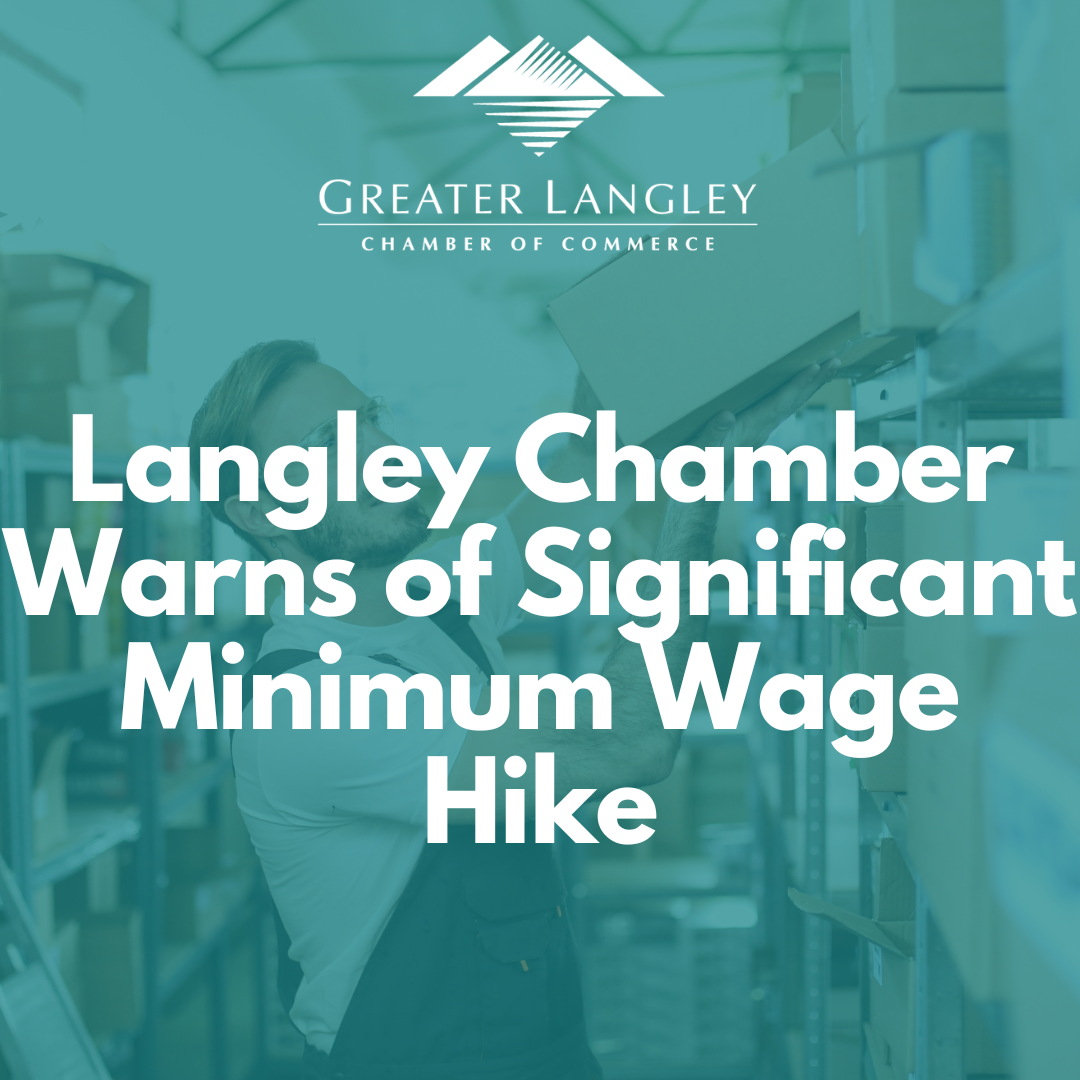Langley Chamber Warns 7% Minimum Wage Increase Could Hurt Business, Fuel Inflation ; Recommends Lower, Adjusted Increase for 2023
Langley Chamber Warns 7% Minimum Wage Increase Could Hurt Business, Fuel Inflation ; Recommends Lower, Adjusted Increase for 2023

Read about this in CBC here, and watch our interview on CBC Vancouver News at 6 here (starting at 17:54)
March 22, 2023 - As BC’s business community awaits a decision on this year’s minimum wage increase, the Langley Chamber is in-advance warning that the potential 7% hike is too significant an increase, and is urging the province to ensure any increase is something more manageable for small businesses.
Currently, the province links the minimum wage increase each year to the Consumer Price Index (CPI) average. The 2022 average was 6.9%, meaning the increase to minimum wage could be a similar amount, to $16.72 per hour. BC’s minimum wage is currently the highest among all provinces at $15.65, having increased $3 per hour or over 23% since 2018, and more than doubling since 2011.
The Langley Chamber's concerns with this are two-fold.
First, for those businesses and sectors which employ people at minimum wage rate, a 6.9% bump or an additional $1.07 per hour would be a sudden and significant increase to their labour costs. In many instances, these businesses operate in industries with both tight margins and high labour needs, making this impact even more significant. In addition, many of these industries are also those which were most negatively impacted by the pandemic, including hospitality, accommodation, tourism, and more.
A further concern would be the inflationary impact this kind of increase would have as it cascades all along the wage scale. While many Chamber members already pay greater than the minimum wage, if the bottom of the wage scale increases in this way it will almost certainly lead to further upward wage pressures on other wage levels. Anything that further drive inflation following a year where businesses have already experienced unprecedented wage and salary pressures is concerning.
“Many businesses are paying more than the minimum wage already and don’t begrudge that. But the concern is that raising the minimum wage by so much will put even more upwards pressure on wages all along the pay scale,” says Cory Redekop, CEO of the Langley Chamber. “If the minimum wage increases 7%, that rise will not only impact those workers, but will cascade up through other employees and wages too, fueling further inflation and creating yet another cost increase which our business community doesn’t need right now.”
Instead, the Langley Chamber recommends the provincial government consider eschewing the CPI-average as the benchmark for this year, and adjust the increase to a lower amount, more aligned with long-term averages and in recognition that the CPI has been falling for months. “While the CPI average the province uses sits at 6.9%, we’ve already seen inflation drop below that to 6.6% in December, and now 6.2% in January and February. If that trend continues, by June when the minimum wage increases we could actually be looking at a much different inflation picture,” adds Redekop.
For more information on the BC Minimum Wage, click here.
Share your thoughts! Email us with your thoughts on this or any other policy issue.
